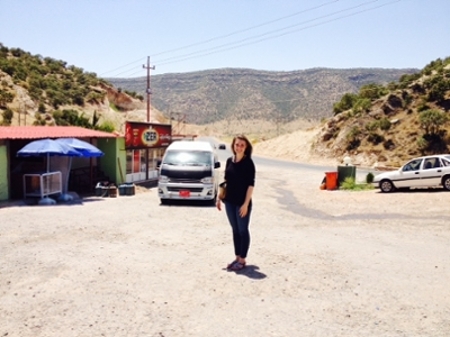My Travels in Sulaymaniyah
This week I took a day trip to Sulaymaniyah, another city in the Iraqi Kurdish Region (IKR). This was my second trip to Sulaymaniyah, but I had the opportunity to meet with a different partner civil society organization (CSO) and the dean of the Sulaymaniyah Law School. It was a great opportunity to see how organizations are working in Iraq to develop a sustainable legal aid system.
Along with my supervisor, David Sip, Senior Legal Advisor, I met first with the Director and staff of Women’s Organization for Legal Assistance (WOLA). WOLA is a great organization that provides free legal assistance to vulnerable women. The director of the organization said they primarily work with poor women who are going through divorces, and experiencing domestic violence. The organization also hosts workshops open to the public to raise awareness on women’s rights in the IKR. She said the organization was currently in the process of helping an eleven year old who was married to a middle aged man. According to Iraqi law, fourteen is the earliest an individual can be married with parental consent, and sixteen without parental consent. However, this law is often ignored, and young girls are continually married to older men through religious ceremonies. The Access to Justice Program and its partners are working with government officials, tribal leaders, and religious leaders to combat this oppressive practice. Progress has been made, but much more work needs to be done so that young girls are protected. WOLA is one organization that has had great success, and it was an honor to meet young attorneys and social workers that strive to advocate for vulnerable women and children.
After meeting with WOLA, we went to the Sulaymaniyah Law School. The law school is opening a legal clinic for the first time when classes resume in September 2014 with new funding from Access to Justice. Clinical work is a new concept in Iraq, as the traditional curriculum typically focuses on theory while ignoring practical application. The goal of the program is primarily to educate law students on client work while instilling the importance of pro bono work, but the program also hopes to serve 20 clients in its first year. The school is also partnering with WOLA to have ten interns work with WOLA and gain practical experience during the school year. I have found the Access to Justice Program to be very comprehensive in that it works to promote legal aid at the government, direct services, and education levels. I’m very excited for the students at Sulaymaniyah Law School who will have opportunities for hands on experience for the first time.
